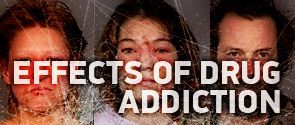Hospitals are treating a growing number of drug users who have overdosed on heroin mixed with other substances by dealers because of a huge shortage of the opiate across the UK.
One of the most severe heroin 'droughts' for five years has been reported in areas across the UK, including, London, Lancashire, Surrey, and Stockton-on-Tees.
The shortage has been linked not to seizures of the drug by law enforcement agencies but to a fungus that has blighted this year's poppy crop in Afghanistan, reducing it by half.
Users are overdosing on either adulterated heroin, or, in some cases, what has been found to be a combination of a powerful sedative, caffeine and paracetamol. Some have become unconscious very soon after injecting or smoking it, while others have reported vomiting, flu-like symptoms and amnesia, drug agencies say.
One of the most recent reports of overdoses and hospital admissions came last week from Hastings, where four users overdosed even though they had only taken a small amount of what they thought was heroin. Toxicologist Dr John Ramsey, head of the Tictac Communications drugs database at St George's medical school, London, said he had had about 50 recent requests to analyse adulterated heroin.
While sedatives of the type turning up in recent batches used to be found only in the occasional sample of heroin, there appeared to be much more of it around now, he said.
Gary Sutton, head of drugs at the charity Release, said: "There is a very significant heroin shortage across the UK at the moment. It has been going on for some time now, but the last two months have seen stockpiles exhausted."
He expressed concern that what was being sold as heroin at the moment appeared to be adulterated with a powerful sedative and mixed with a high percentage of bulking agents like talcum powder or paracetamol.
"If people use this intravenously, perhaps on top of alcohol and methadone [the prescribed substitute drug for heroin], it is extremely risky. We have had many reports of people overdosing. It's really important that accident and emergency departments understand that they may not be dealing with a 'normal' heroin overdose when people are brought in," he said.
"When the drought ends, prices will rise. Heroin tolerance will be reduced, so the risk of fatal overdose will be much higher."
Such is the alarm about the current situation that several drugs agencies committed to harm reduction held an urgent meeting last week to discuss setting up an online warning system about contaminated street drugs.
Neil Hunt, director of research at KCA, a nationwide community drug treatment service, said: "This 'heroin drought' appears to be serious and geographically widespread. Street heroin is in a complete and utter muddle at the moment, and users are collapsing unexpectedly. We need to standardise information about what's out there."
Among heroin users commenting in online forums about the drought, one long-term user said: "I've never known anything like it in 30 years."














